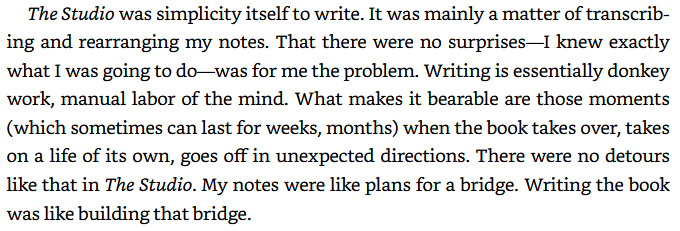Maybe you can create coherent writing from a pile of notes after all
“My notes were like plans for a bridge”.
I’ve argued that you can’t create good writing just by mashing your notes together and hoping for the best. That’s the illusion of connected thought, I’ve said, because you can’t create coherent writing just from a pile of notes.
Well, maybe I was wrong.
Perhaps a strong or experienced writer can do exactly that. Here’s John Gregory Dunne, the journalist husband of Joan Didion, in the Foreword to his 1968 book on Hollywood, The Studio:


I imagine he wasn’t just a good writer, though.
Surely he was first a very good note-maker.
I’d like to hear about people’s experiences, good and bad, of using their notes to create longer pieces of writing. Was it like building a bridge, or perhaps like building a bridge out of jelly?

HT: Alan Jacobs, who draws a different but very valid lesson from the anecdote.
Stay in the Writing Slowly loop and never miss a thing (unless you don’t get round to opening your emails, in which case, yeah, you might miss a thing. Anyway: